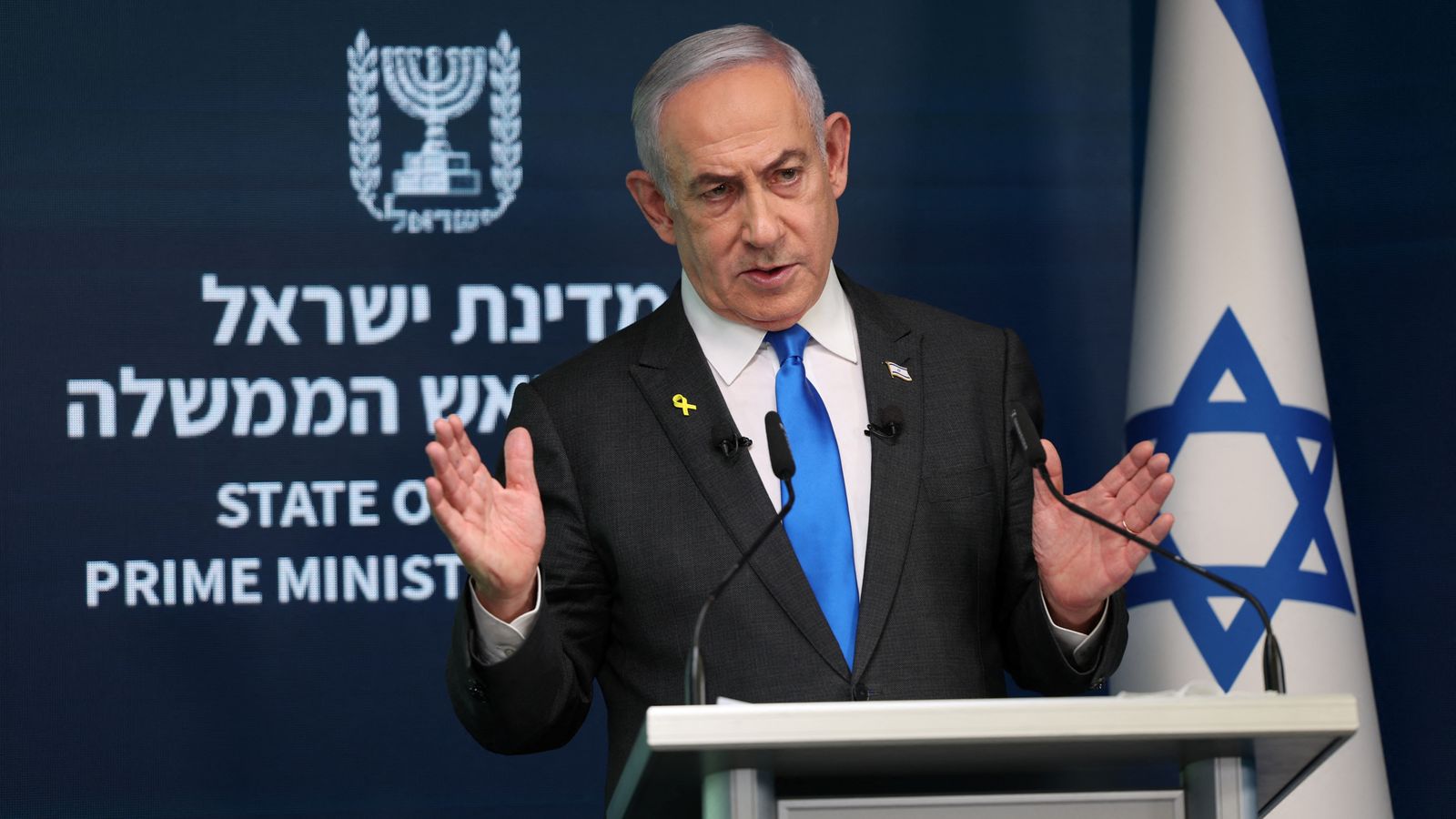Israel will not remove its troops from a narrow strip of land on the Gaza side of the border with Egypt until there is a guarantee it can never be used as a supply line for Hamas, Benjamin Netanyahu has said.
The area of scrubland and sand dunes, known as the Philadelphi corridor, was seized by his forces in May and has become a key obstacle in talks to try to secure a ceasefire with Hamas in Gaza.
The Israeli prime minister has insisted on retaining control of the corridor, where his troops have uncovered dozens of tunnels which officials say have been used to supply Hamas with weapons and ammunition.
He told foreign media that his country’s three “war goals”: destroying Hamas, releasing all hostages and ensuring Gaza never again poses a threat to Israel, could not be achieved without control of the corridor.
Mr Netanyahu repeated his outright rejection of a withdrawal from the Philadelphi corridor in the first phase of a deal, expected to last 42 days, saying international pressure would make it effectively impossible to return.
For a permanent ceasefire to be agreed upon after that, Israel would need guarantees that whoever ran postwar Gaza would be able to prevent the corridor from being used as a route for smuggling weapons and supplies for Hamas.
The message was similar to one Mr Netanyahu presented to Israeli media on Tuesday and also one which Ron Dermer, a close aide to the prime minister and Israeli minister of strategic affairs, gave in an interview with Sky News’ Yalda Hakim on Wednesday.
Mr Dermer said Hamas’s massacre insouthern Israel on 7 October last year “couldn’t have happened” if the corridor had been closed and if Israel gave up control it would put the country at risk of repeated attacks.
“If you want to release the hostages, you have got to control the corridor,” Mr Netanyahu said, explaining his position in detail.
“[Hamas is] only demilitarised if the corridor remains under firm control and is not a supply line.”
He also hit out at international pressure to “end the war” and accept a hostage deal with Hamas – which US, Qatari, and Egyptian negotiators have been working to secure for months.
“People said ‘If you stay, this will kill the deal’, but such a deal will kill us,” Mr Netanyahu stated.
“If we leave there will not be any pressure points and we won’t get the hostages, the real obstacle to getting a deal is Hamas.”
If agreed, a deal would see the release of the remaining 101 hostages who have been held since the 7 October attack, in which more than 1,200 people were killed and over 250 taken hostage.
Both sides previously agreed, in principle, to a plan announced by US President Joe Biden on 31 May, but Hamas has since proposed amendments and Israel has suggested clarifications – leading to each side accusing the other of trying to scupper the deal.
Following the latest negotiations last month, mediators said they had presented a proposal to both parties, which they hope will build on areas of agreement and bridge any remaining gaps.
‘I am sorry’
Mr Netanyahu also faces a great deal of internal pressure to agree a deal.
Mass protests in Israeli cities such as Tel Aviv and Jerusalem have taken place over the past four days, sparked by the recovery of the bodies of six hostages from a tunnel in southern Gaza on Saturday. Israel says the hostages were shot dead by Hamas.
Addressing the loved ones of the six, Mr Netanyahu said he had visited one of the families and had spoken to others.
He explained: “I said to them that I am sorry.”
“I apologised that we didn’t get them out. We worked so hard to get them, we were close, but we didn’t,” he said.
Despite the mass gatherings of demonstrators, Mr Netanyahu said the people of Israel were “overwhelmingly united” and committed to achieving its goals in Gaza.
According to the territory’s health ministry, more than 40,800 Palestinians have been killed in a retaliatory offensive by Israel for the 7 October attack.
More than 30 Palestinians have also been killed since Israel launched a major operation in different areas of the occupied West Bank, involving hundreds of soldiers and armoured vehicles.
It claimed the offensive was to thwart Iranian-backed militant groups preparing attacks on Israeli civilians.






